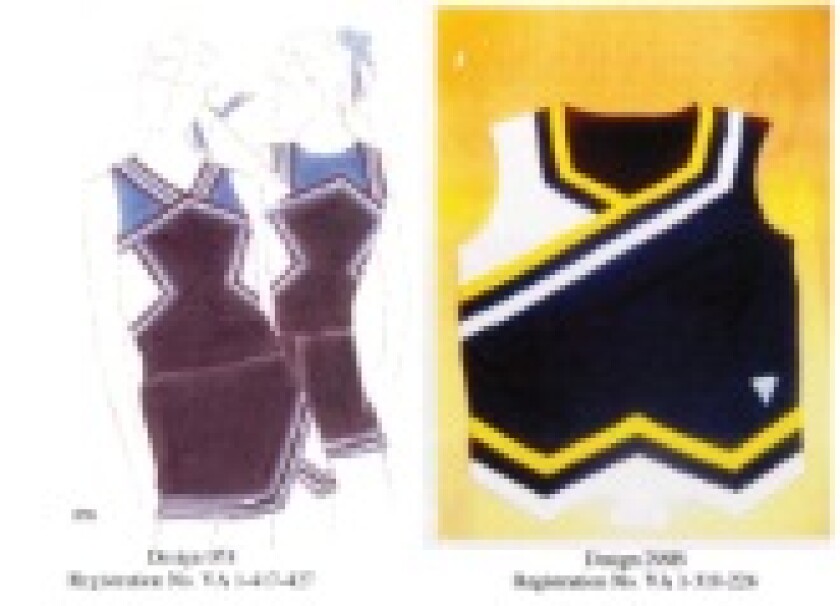
The US Supreme Court this morning granted cert in two intellectual property cases – one patent and one copyright.
The court’s appetite for IP cases does not appear to be dimming. Last week it heard oral arguments in the Cuozzo and Kirtsaeng cases, and will soon hear oral arguments in the Samsung v Apple case involving damages.
Star Athletica v Varsity Brands
In Star Athletica v Varsity Brands, the court will wrestle with the functionality doctrine in copyright law. The petition was granted limited to question one presented by the petition, which was:
What is the appropriate test to determine when a feature of a useful article is protectable under § 101 of the Copyright Act?
At issue in the case in whether Varsity Brands can enforce its registered copyrights in its uniforms.
As we previously reported, the Sixth Circuit Court of Appeals last year ruled that Varsity Brands’ designs could be separated from the utilitarian aspects of cheerleading uniforms. Varsity Brands had sued Star, alleging that it had copied its two-dimensional stripes, colours and other ornamentation familiar to cheerleading uniforms. The trial court had previously found that the designs were not separable from the uniforms themselves.
Dorsey’s Michael Keyes noted on The TMCA Blog: “While the case involves the narrow issue of cheerleading uniforms, the Supreme Court’s decision could have far-reaching effects beyond the land of tumbles, flips, and pyramid displays. The ruling may very well affect how federal courts analyse copyright protection involving designs on any utilitarian objects, including uniforms, automobiles, or coffee tables.”
The case involves the following designs, taken from Star Athletica’s petition for cert:

SCA Hygiene Products v First Quality Baby Products
In SCA Hygiene Products v First Quality Baby Products, the Supreme Court will consider the question:
Whether and to what extent the defence of laches may bar a claim for patent infringement brought within the Patent Act’s six-year statutory limitations period, 35 USC § 286.
This follows the Supreme Court in 2014 holding that laches cannot be used to further shorten the copyright limitation period in the Petrella v Metro-Goldwyn-Mayer case, also known as the Raging Bull case.
Despite this ruling, the Federal Circuit in the SCA case held that laches remain a viable defence and can bar infringement claims accruing within the six-year limitation period of Section 286. The ruling was split 6-5.
The Patently-O blog notes that laches arises in patent and copyright cases “more often than you might think” because of the legal treatment of “ongoing” infringement.
Dennis Crouch on the Patently-O blog predicted: “Look for the court to reverse the Federal Circuit’s ruling based upon the historic interplay between equity and law. As in Petrella, I expect that the court will base its decision on the rule that that laches is a defence to equitable relief but does not limit the recovery of legal damages. Although Petrella was 6-3, I expect that the dissenters will see the value in linking patent and copyright regimes.”









